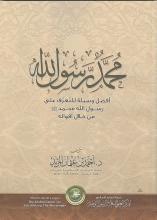The Prophet of Mercy Website
Muslim World League - Global Commission for Introducing the Messenger
At the beginning of the fourth year of the prophetic mission, the polytheists, having realized the futility of previous attempts to stifle that which the Prophet (peace be upon him) called to, decided to organize a full-scale campaign against Muslims. Following some lengthy deliberations, they reached a decisive decision to take measures deemed to stop the ‘tidal wave’ of Islam through different means. They were determined to spare no effort, in combating the ‘new faith’. It was generally agreed that one of the best ways for them to do so was to start a smear campaign against the character of the Prophet (peace be upon him) and place the new converts to the religion into different sorts of torture. It was easy to put the resolutions relating to the new converts who were deemed weak into effect, as for the Prophet (peace be upon him), it was not easy to malign him as he was known for the magnanimity and matchless perfection of character. Since his uncle, Abu Talib, came from noble descent with a powerful clan to support him, abuse which could made against the Prophet (peace be upon him) was limited. Such a development was a great source of hindrance to the polytheists, they felt that they could no longer exercise patience or show any tolerance before a movement that would eventually annul their religious office and temporal authority.
Abu Lahab, the uncle of the Prophet (peace be upon him), an idol worshipper, himself, took part in series of persecutions:
v He used to fling stones at the Prophet (peace be upon him) in order to harm him.
v He forced his two sons to divorce their wives, Ruqaiya and Umm Kulthum, the Prophet’s daughters.
v He used to gloat over his second son’s death calling him ‘the man cut off with offspring.’
Abu Lahab’s wife, Umm Jameel bint Harb, was not dissimilar to him in the enmity and hatred she harbored for the Prophet (peace be upon him). She used to strew tied bundles of thorns with ropes of twisted palm-leaf fibre in the paths which the Prophet (peace be upon him) was expected to take in order to cause him injury. Her behavior was so terrible to the extent that she was given the title of ‘the carrier of firewood’ in the Qur’an. Upon hearing this, she directly proceeded to where she presumed the Prophet (peace be upon him) may be with a handful of pebbles to hurl at him. Allah, however, protected the Prophet (peace be upon him), making it so that she as unable to see him even though he was sitting right beside his favourite companion; Abu Bakr. She addressed Abu Bakr in an audacious manner and threaten to harm the Prophet (peace be upon him) with her handful of pebbles. Unable to find him, she left, Abu Bakr turned to the Prophet (peace be upon him) in curiosity and inquired about the matter. The Prophet (peace be upon him) confirmed the miracle which had just taken place, informing him that she did not see him because Allah had restricted her sight.
Very few of the Prophet’s neighbours abstained from maligning him, they even threw the entrails of a goat on his back while he was performing his prayers. Such attitudes were unbecoming of any neighbour, the Prophet’s (peace be upon him) teachings towards respecting the rights of one’s neighbour were of no avail for they were far too indulged in error to take heed.
Al-Bukhari, on the authority of Ibn Mas‘ud, narrated that once when the Prophet (peace be upon him) was praying, Abu Jahl challenged one of his companions to bring a dirty foetus of a she-camel and place it on his back. As soon as this was done, a peal of laughter rose amongst the infidels.
‘Uqbah bin Al-Mu‘ait, an idolater, once attended a gathering in which the Prophet (peace be upon him) preached Islam. A close friend of his, Ubai bin Khalaf, heard of this, he was insulted by very idea that someone who he associated himself with could do such a thing. Thus he reproached ‘Uqbah, telling him to spit in the Prophet’s (peace be upon him) face, in order to protect his reputation he shamelessly complied. Ubai, himself, did not spare the Prophet (peace be upon him) in insulting him, at one point he grounded old decomposed bones and blew the powder on him.
Al-Akhnas bin Shuraique Ath-Thaqafi used to detract from the character of the Prophet (peace be upon him) in season and out of season. The Qur’an, in direct reference to his ignominious deeds, attached to him nine abominable traits:
"And obey not everyone who swears much, — and is considered worthless, a slanderer, going about with calumnies, hinderer of the good, transgressor, sinful, cruel — after all that base-born (of illegitimate birth)." [Al-Qur'an 68:10-13] [Ibn Hisham 1/356]
Abu Jahl’s arrogance and haughtiness blocked all avenues that could produce the smallest spark of belief in his heart:
"So he (the disbeliever) neither believed (in this Qur’an, in the Message of Muhammad (peace be upon him)) nor prayed!" [Al-Qur'an 75:31]
Abu Jahl was a very stubborn individual, one that would never wake up to himself nor realize his foolish practices. On the contrary, he was determined to go to extremes in order to try and disgrace the Prophet (peace be upon him) and those that followed him. Once, he swore that he would dust the Messenger’s face and tread on his neck. No sooner had he proceeded to go and fulfill his wicked intention than he was seen turning back shielding himself with his hands as if something horrible was pursuing him. Such a sight, would no doubt have been strange to the observer, after being asked what the matter was, he said: "I perceived a ditch of burning fire and some wings flying." Later on, the Messenger commented saying, "if he had proceeded further, the angels would have plucked off his limbs one after another."
Such was the disgraceful treatment given to the Prophet (peace be upon him). One must reflect on the fact that although the Prophet (peace be upon him) had the support of his uncle, Abu Talib, an influential man within Mecca, he was still constantly abused. Such abuse illustrates the kind of abhorrence idol worshipping Meccans had for Islam.
Here, one may even ask the question, if the Prophet (peace be upon him) was abused even though he had the protection of his uncle, then what of those people deemed weak with no clan to support them? Let us consider their situation in some detail. Whenever Abu Jahl heard of the conversion of a man of high birth with powerful friends, he would degrade his prudence and intellect, undermine his judgement; and threaten him with dire consequences if he was a merchant. If the new convert was socially weak, he would beat him ruthlessly and put him to unspeakable tortures.
The uncle of ‘Uthman bin ‘Affan used to wrap ‘Uthman in a mat of palm leaves, and set fire under him. When Umm Mus‘ab bin ‘Umair heard of her son’s conversion, she put him to starvation and then expelled him from her house. He used to enjoy a luxurious lifestyle, but in the aftermath of the tortures he patiently endured his skin became wizened, and it is even said that he thereafter assumed a bad physical appearance.
Bilal, who accepted Islam as a slave, was severely beaten by his master, Omaiyah bin Khalaf, after he found out about conversion to Islam. At times, street boys were made to drag him through the streets and even across the hillocks of Makkah with a rope around his neck. Sometimes he was subjected to prolonged deprivation of food and drink; at others he was bound up, made to lie down on the burning sand and under the crushing burden of heavy stones. Several other attempts were made to force him to recant Islam, all such attempts proved to be in vain.
Another victim of the highhandedness of polytheists was ‘Ammar bin Yasir. He, along with his mother and father, together embraced Islam and were among the very first muslims. They were repeatedly made to lie on the burning sand and were beaten severely. ‘Ammar was at times tossed up on embers. The Prophet (peace be upon him) was greatly moved by the atrocities which were being perpetrated upon ‘Ammar and his family. He always comforted them and raised his hand in prayer and counseled them saying: "be patient, you will verily find your abode in the Paradise." ‘Ammar’s father, Yasir, died due to repeated tortures made on him. His mother, Sumaiyah, was bayoneted to death by Abu Jahl himself.
‘Ammar, himself, was subjected to various kinds of torture and was always threatened with great suffering unless he abused Muhammad (peace be upon him) and recanted to Al-Lat and ‘Uzza, two idols worshipped by polytheists of Mecca. In a weak moment, he uttered a word construed as recantation though his heart never wavered and he came back once to the Prophet (peace be upon him) , who consoled him for his pain and confirmed his faith. Immediately afterwards the following verse was revealed:
"Whoever disbelieved in Allah after his belief, except him who is forced thereto and whose heart is at rest with Faith —." [Al-Qur'an 16:106]
Khabbab bin Al-Aratt was also an easy victim for the polytheists, they used to pull his hair and twist his neck, and made him lie on burning coal with a big rock on his chest to prevent him from escaping. Some Muslims of rank and position were wrapped in the raw skins of camels and thrown away, and others were put in armours and cast on burning sand in the scorching sun of Arabia.
References:
The Sealed Nectar
[Fi Zilal Al-Qur'an 30/282; Tafheem-ul-Qur'an 6/522],
[At-Tirmidhi]
[Ibn Hisham 1/335]
[Bukhari 1/37]
[Fi Zilal Al-Qur'an 29/312; Muslim]
[Ibn Hisham 1/320]
[Ibn Hisham 1/317-318; Rahmat-ul-lil'alameen 1/57]
[Eijaz At-Tanzil p.53]
[Talqeeh Fuhoom Ahl-al-Athar p.60; Rahmat-ul-lil'alameen 1/57]
******






